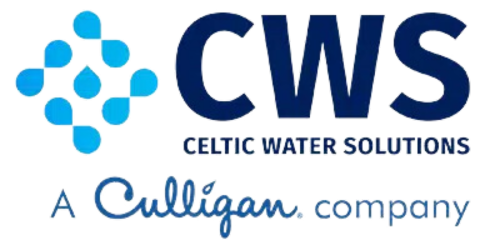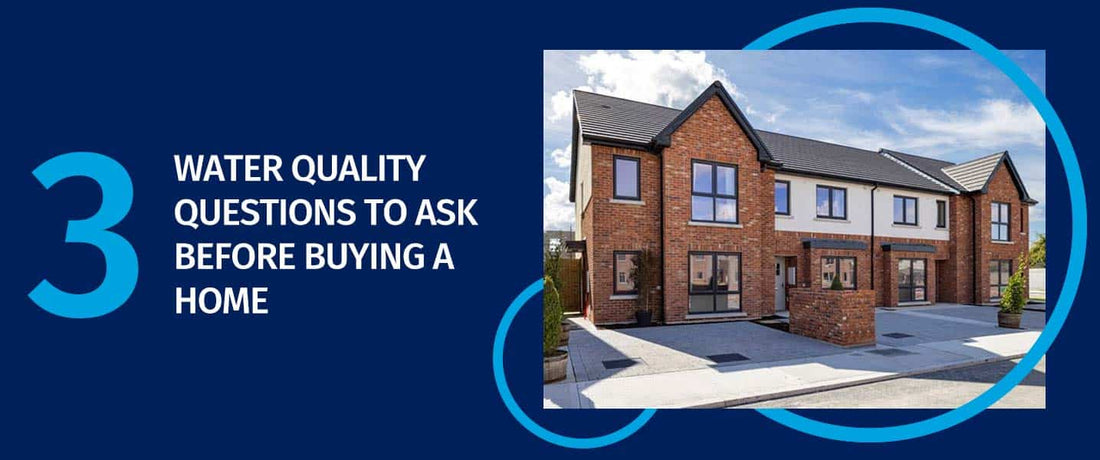For many of us, buying a house is one of the most crucial decisions we’ll make in our lives. It’s a significant investment that will affect your finances, lifestyle, and overall happiness for years to come. If you’re in the process of buying a home, congratulations! It’s an exciting time.
You’re likely thinking of the number of bathrooms your new house might have, kitchen cabinets, local shops, schools and more; however, water quality is something that often gets overlooked by prospective homeowners.
Bringing your ideal home to life starts with quality water. It’s important to have quality water for drinking, cooking, bathing and cleaning. So, ask these three questions to make sure there are no unpleasant surprises down the line.
1. What is the source of water?
The source of incoming water has a significant impact on the overall water quality you’ll have in your new home. Therefore, it becomes critical to understand what is present in your tap water on a microscopic level. In Ireland, public mains water and private well water are common sources of water.
Public Mains Water
If your home is supplied by a public water source such as Irish Water, then your water is required to meet standards set for drinking water quality and safety set by European Union as per S.I. No. 122/2014 - European Union (Drinking Water) Regulations 2014 directive.
The Environmental Protection Agency (EPA) is the drinking water quality regulator for public water supplies, responsible for enforcing Drinking Water Regulations.
Public mains water undergoes treatment at a local water treatment plant before it is supplied to the consumer which makes it highly reliable.
Unfortunately, even public water supplies can have water quality issues. Contaminants may sneak their way into the treated water before it reaches homes, and on top of that, not all contaminants are regulated by authorities. The use of chlorine in water disinfection – a common practice, is typically safe, but higher levels of chlorine can affect the smell and taste of your water.
Private Well Water
Private wells are not regulated by authorities. So, if your home has a private well, it’s even more important to look into the quality of your water. Homeowners are responsible for
regularly testing and treating the well water.
Well water is often susceptible to quality issues such as both aesthetic (colour, clarity, taste, smell) and health-related. Some of the most common aesthetic issues well water users experience are:
These issues can be an inconvenience, but there are health-related reasons for a homeowner to learn more about their water as well. Contaminants such as
bacteria, nitrates, and arsenic may also be present in well water, all coming with various health risks.
Depending on the well’s age and how long you plan to live there, you may need to replace parts of the well and
pump or even dig a new one. Having a sense of the size and features of the well is also important.
Read More: 5 Things to Know Before Owning a Home With Private Well
2. Is the area known for any water issues?
It’s better to be straightforward when asking about potential problems with your prospective home, and water quality is no exception. Although most water quality problems can be resolved with appropriate treatment, it is critical to understand the type of issue you are dealing with. These problems can range from inconvenient or unpleasant to severe health hazard, so it's important to be aware of the situation.
What common water problems should you be sure to ask about specifically? Hard water is a common problem for many homeowners in Dublin, Meath, Kildare and adjoining areas. Minerals in hard water can cause a
damaging effect on boilers, showers, dishwashers, and washing machines. It can also lead to skin & hair issues, spotting on dishes and glassware, and limescale buildup on surfaces.
For households on mains water supply, you can easily know water hardness levels in your area by using our
free water hardness checker tool.

If you’re unable to get the answers that you need from the previous homeowner, talk to your prospective neighbours to find out what they know about your area’s water and how they treat it.
3. Are there any water treatment systems installed in the home?
Another important question to ask is whether any water filtration systems are currently installed in the home. Examples of water treatment systems that may be installed include water softeners, reverse osmosis systems or any specialist
filtration system for well water.
Water softeners are typically installed at the point of entry – where water first enters the home. This softens the water throughout the house.
In contrast,
drinking water systems are typically installed at the point of use – under the kitchen sink, for example, where you may wish to have safe, quality drinking water come out of the tap. This allows you to have an endless supply of contaminant-free water without the hassle or environmental concerns of buying bottled water.
If the new home you want to buy already has these water treatment products, you’re off to a great start. Now, you might consider some additional questions:
- When were the systems installed?
- What brands are they?
- How well are they currently working?
- What maintenance do they require?
- Do they require an upgrade?
If you find the current water treatment systems to be lacking, Celtic Water Solutions can help.
Next Steps
The journey of buying a new home can be daunting, but taking the time to ask the right questions can ensure that you’re getting the quality water you want and deserve. Once you have all the information you need, you can make a more educated decision about the property.
If the new home you’re considering does not already have water quality systems in place, or if they’re old or deteriorating, we can help! Our water quality experts can help you decide exactly what product or system you need for your specific location and household water usage.
 If you’re unable to get the answers that you need from the previous homeowner, talk to your prospective neighbours to find out what they know about your area’s water and how they treat it.
If you’re unable to get the answers that you need from the previous homeowner, talk to your prospective neighbours to find out what they know about your area’s water and how they treat it.

